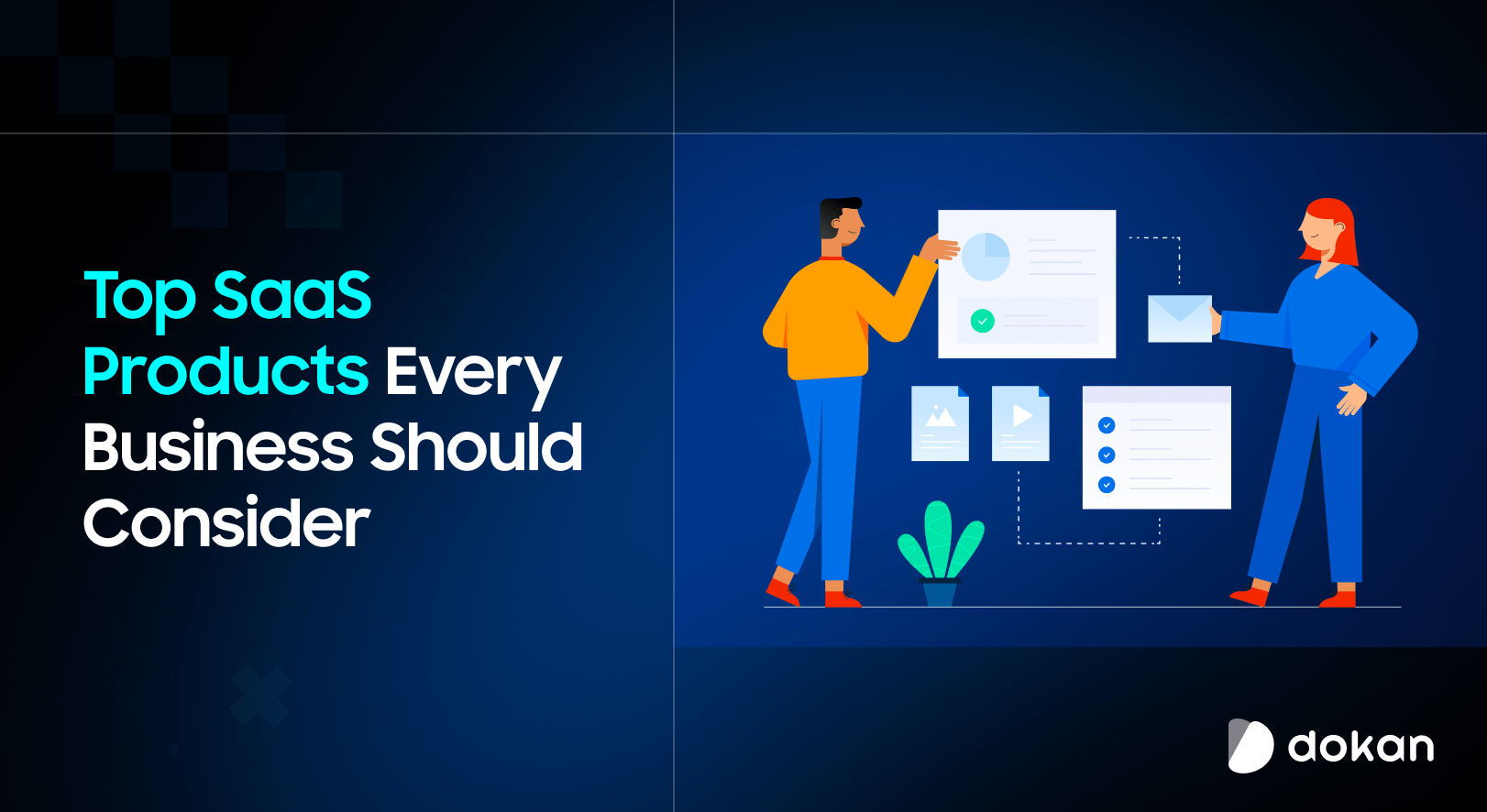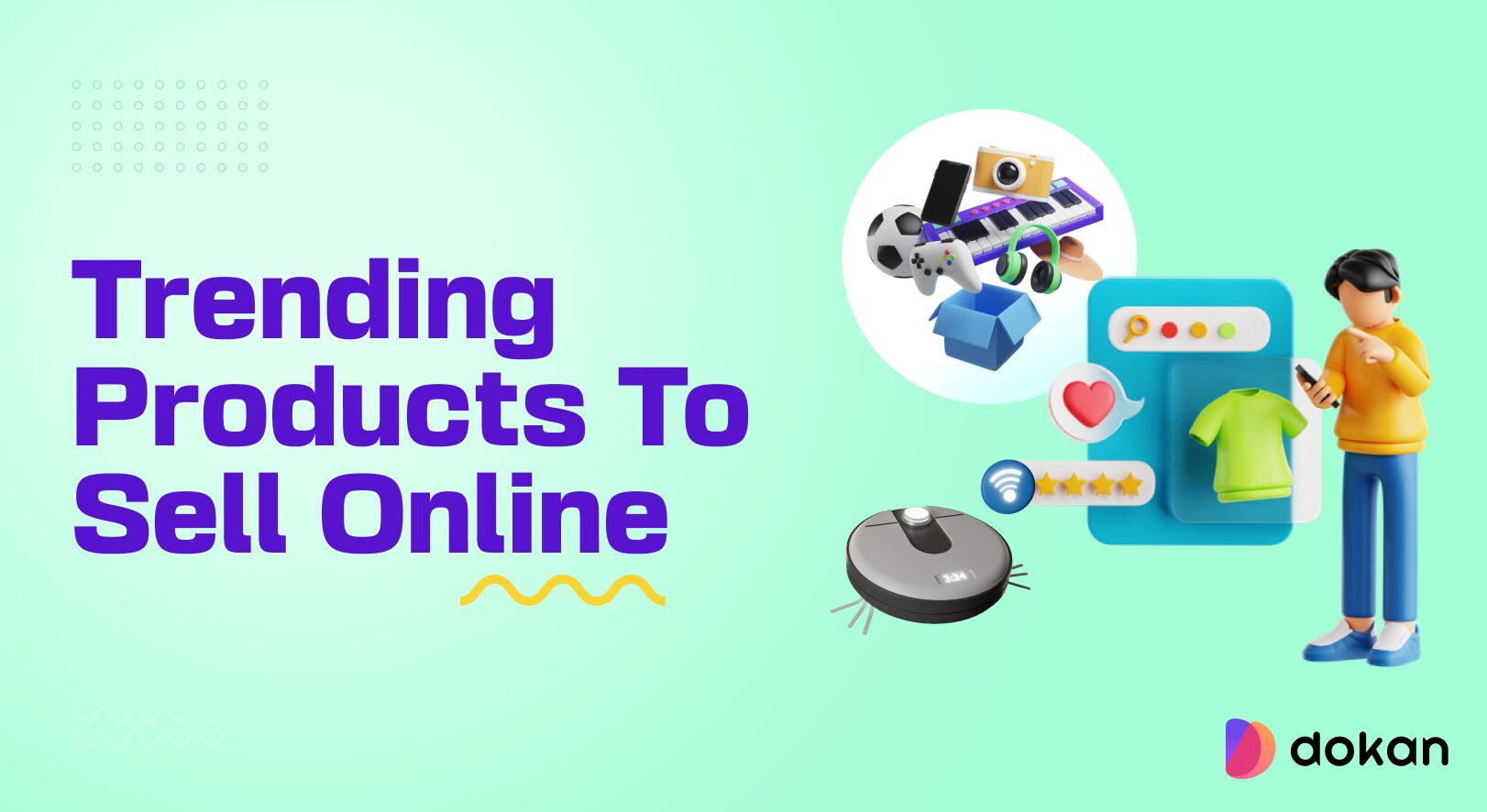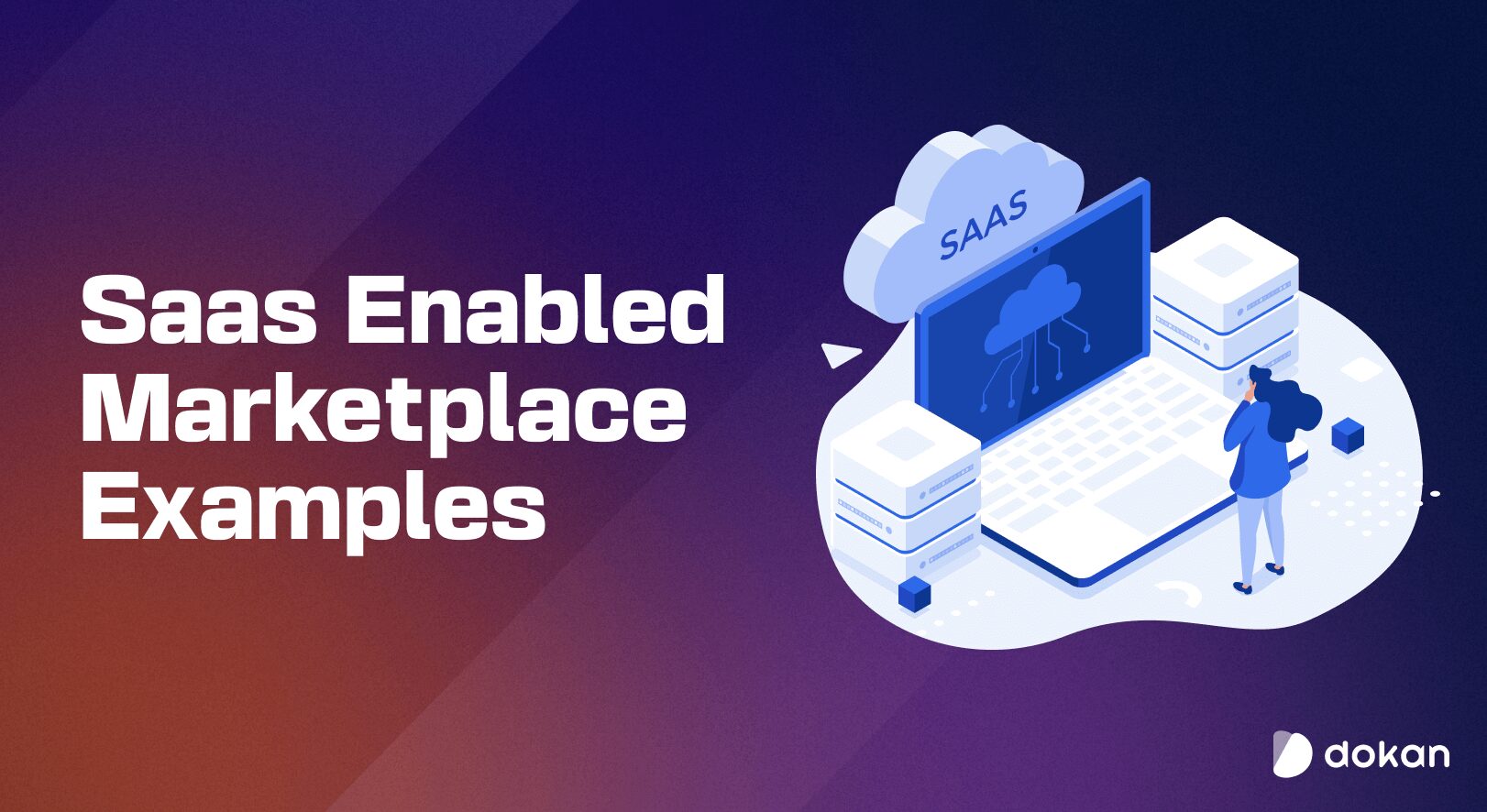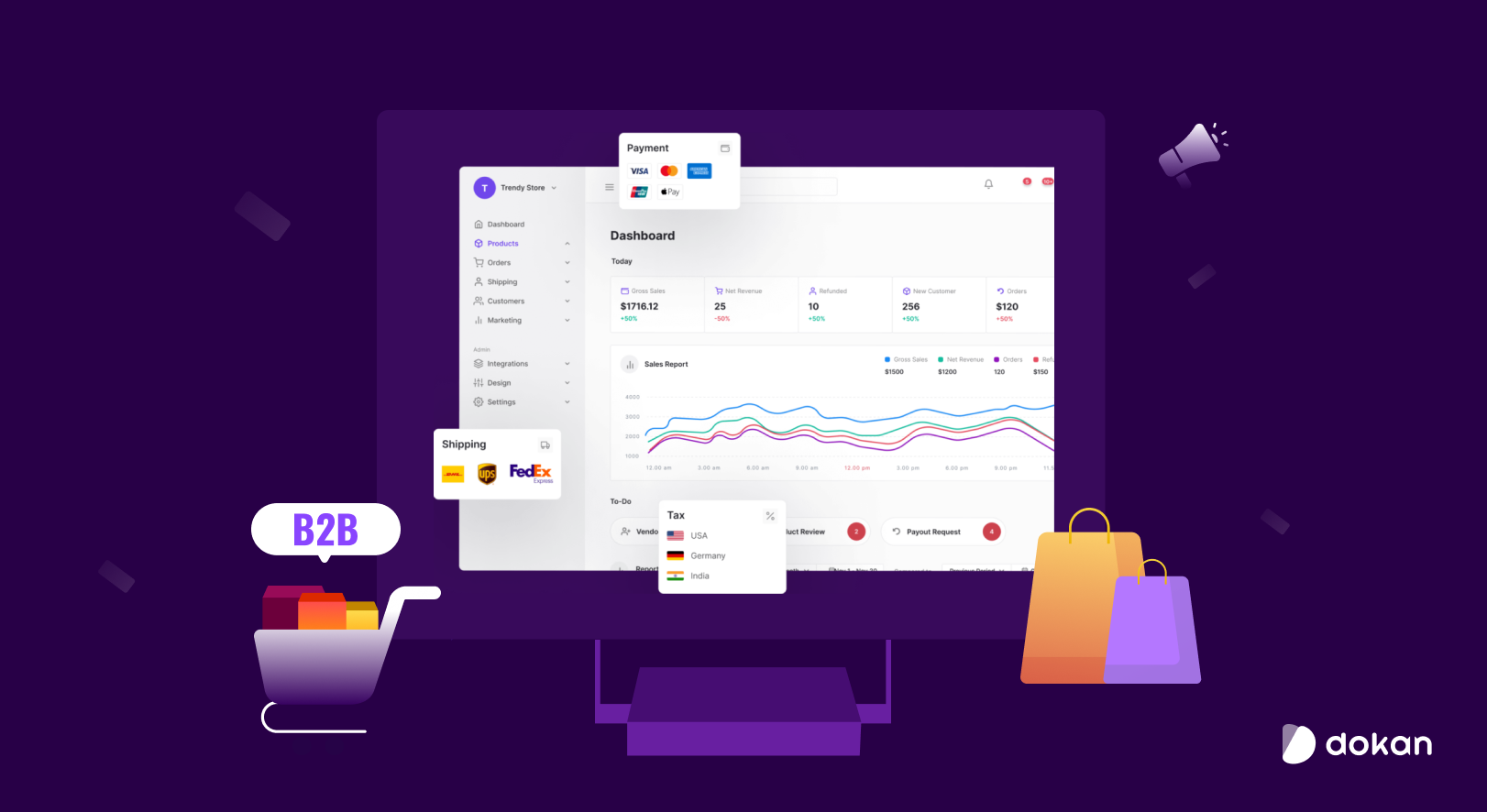If you’re running a business or planning to start one, you already know how tricky it is to pick the right tools.
The wrong choice can slow you down, but the right one? It can completely change how you work.
That’s where SaaS products come in. They’re designed to make business smoother, smarter, and faster.
But let’s be real. With so many options out there, figuring out which tools are actually worth it in 2026 isn’t easy.
That’s why we put together this list of the top SaaS products every business should consider. Give it a read. It’s not just another list, it’s a shortcut to finding the tools that can actually make a difference for your business.
So, let’s get started!
How SaaS Business is Growing
The SaaS industry is booming. The global SaaS market size was valued at USD 266.23 billion in 2024.
The market is expected to grow from USD 315.68 billion in 2025 to USD 1,131.52 billion by 2032. This represents a compound annual growth rate (CAGR) of 20.0% over the forecast period.

This rapid growth shows how businesses are increasingly adopting SaaS solutions.
One key factor driving this growth is the shift to cloud-based services. Companies across various sectors are turning to SaaS for flexibility, scalability, and cost-effectiveness.
Over 80% of businesses now use at least one SaaS product, and this number is expected to rise in the coming years.
SaaS adoption isn’t just a trend in the U.S. Countries in the Asia Pacific region, like China and India, are also seeing fast growth. The demand for cloud-based services in these regions is expanding, which is contributing to the global SaaS surge.
Top SaaS Products Every Business Should Consider in 2026
The right SaaS tools can make business operations smoother and more efficient. From improving team collaboration to managing finances, SaaS products cover a wide range of needs.
We will share the top SaaS products based on these categories:
- Top eCommerce Solutions
- Customer Relationship Management (CRM) Software
- Productivity and Collaboration Tools
- Marketing Automation Platforms
- Project Management Tools
Now let’s get into the details!
01. Top eCommerce Solutions

SaaS eCommerce solutions allow you to create any type of eCommerce store or marketplace without buying or installing anything. All you need to do is register on a platform and customize your store to start selling. Let’s find out the most popular eCommerce SaaS platforms:
(a) Dokan Cloud
Dokan Cloud is a powerful SaaS solution for building any type of single store or multivendor marketplace.
It comes with both versions – Dokan Cloud Shop and Dokan Cloud Marketplace:
- Dokan Cloud Shop is perfect for businesses looking to set up a single eCommerce store. It provides an easy-to-use, cloud-based solution with all the essential tools needed to manage products, orders, and payments. It’s ideal for entrepreneurs or small businesses who want to quickly get their online store up and running without the complexity of managing multiple vendors.
- Dokan Cloud Marketplace, on the other hand, is built for businesses looking to create a full-fledged multivendor marketplace, like Amazon or Etsy. With this version, you can manage commissions, track sales, and provide each vendor with their own dashboard, which makes it an excellent choice for those who want to create a dynamic online marketplace.
Both versions offer easy integration with payment gateways, product management, and order tracking. They’re both scalable and provide the tools needed to grow, no matter the size of your business.
(b) Shopify
Shopify is a popular eCommerce platform that helps businesses create and manage online stores with ease. It offers a simple, user-friendly interface. You can quickly set up a store, manage products, and handle payments without any technical knowledge.
Shopify also includes essential features like secure checkout, inventory management, and marketing tools to drive traffic and sales. It’s scalable. As your business grows, Shopify can grow with it, making it a great option for businesses of all sizes.
02. Customer Relationship Management (CRM) Software

CRM tools help businesses manage customer interactions and boost sales. Top choices include:
(a) Salesforce
Salesforce is a leading CRM platform that helps businesses manage customer relationships and streamline sales processes. It offers tools for tracking leads, managing contacts, and automating sales workflows. Salesforce provides a customizable dashboard to help businesses understand customer behavior and improve communication.
With its cloud-based solutions, Salesforce allows teams to collaborate and share information easily. It also integrates with many third-party apps. This gives businesses the flexibility to expand and improve their CRM features. Salesforce is trusted by companies of all sizes for managing their customer data and boosting sales performance.
(b) HubSpot
HubSpot is a popular CRM platform that helps businesses manage marketing, sales, and customer service. It provides tools for lead generation, email marketing, and content management, which makes it easy to engage with customers and increase sales.
HubSpot also offers detailed analytics and reporting. This allows businesses to track performance and optimize their strategies. Its user-friendly interface and seamless integrations make it a great choice for businesses that want to improve customer relationships and streamline operations.
(c) Zoho CRM
Zoho CRM is a versatile platform designed to help businesses manage customer relationships and automate sales processes. It offers tools for lead management, sales tracking, and customer communication, all in one place.
Zoho CRM also provides customization options to fit the specific needs of your business. It integrates with various third-party apps, which helps you enhance your CRM capabilities.
With its user-friendly interface, Zoho CRM is a great choice for businesses looking to streamline their sales and customer service operations.
03. Productivity and Collaboration Tools

These tools help teams work better together, even when they are miles apart. Popular options include:
(a) Slack
Slack is a powerful tool that makes team communication simple and fast. It lets you send messages, share files, and organize conversations by topics or projects. This helps your team stay in sync, no matter where they are.
Beyond messaging, Slack connects with other apps like Google Drive and Asana. This keeps everything in one place to save time and reduce the hassle of switching between tools. It’s perfect for teams looking to boost collaboration and streamline their work.
(b) Microsoft Teams
Microsoft Teams is a collaboration platform that brings everything your team needs into one place. It combines chat, video calls, and file sharing. All these things make it easy to work together, whether you’re in the office or remote.
Teams also integrates seamlessly with other Microsoft tools like Word, Excel, and SharePoint. This means you can work on documents, hold meetings, and track projects without leaving the platform. It’s a solid choice for businesses looking to improve communication and productivity.
(c) Zoom
Zoom is a video call app that makes meetings easy, even if everyone is working from different places. You can use it for everything, from quick team chats to big webinars.
It lets you share your screen, break into smaller groups for discussions, and even add fun virtual backgrounds. Zoom also works with other apps, so it makes it super easy to keep everything organized and stay connected with your team.
04. Marketing Automation Platforms

These tools automate repetitive marketing tasks and help nurture leads. Consider these options:
(a) Mailchimp
Mailchimp is an email marketing platform that helps businesses reach their audience through emails. It allows you to create and send newsletters, promotional emails, and automated campaigns with ease.
It offers easy-to-use templates for designing your emails. Mailchimp also tracks how your emails perform to show you what’s working and what isn’t. This makes it a useful tool for businesses that want to stay connected with their customers and grow their reach.
(b) ActiveCampaign
ActiveCampaign is an email marketing and automation tool designed to help businesses connect with their customers. It allows you to create personalized email campaigns, automate workflows, and manage customer relationships.
With features like segmentation and advanced analytics, ActiveCampaign helps you send the right message to the right people at the right time. It also integrates with other tools to make it easier to manage all your marketing efforts in one place.
(c) Marketo
Marketo is a marketing automation platform that helps businesses run campaigns, manage leads, and analyze marketing efforts. It’s designed to make it easier for teams to target the right audience and improve customer engagement.
With features like email marketing, lead nurturing, and analytics, Marketo helps businesses create personalized experiences. It also integrates with other platforms to make it easier to track results.
05. Project Management Tools

Stay on top of tasks and deadlines with these project management platforms:
(a) Asana
Asana helps you organize your tasks and projects. It’s easy to create tasks, set deadlines, and assign work to team members.
The tool allows you to track your progress and stay on top of everything. You can use boards, lists, or calendars to see where things stand. Asana makes it simple for teams to collaborate, share updates, and keep everyone on the same page.
It also connects with other tools, so your work can flow smoothly across platforms. Whether you’re handling small tasks or bigger projects, Asana helps you stay organized.
(b) Trello
Trello is a simple project management tool that helps teams stay organized. It uses boards, lists, and cards to manage tasks and projects. You can create a board for any project and add lists for different stages of work.
Each list contains cards for tasks, which can be moved around as work progresses. You can also assign tasks, add due dates, and collaborate with team members directly on the cards. Trello keeps everything visual which makes it easy to track progress and stay on top of your work.
(c) Monday.com
Monday.com is a work management tool that helps teams plan, track, and manage projects. It lets you create boards to organize tasks, set deadlines, and assign work to team members.
You can customize workflows to fit your project needs. The platform also offers visual tools like timelines, calendars, and charts to help you see progress at a glance. It’s designed to make collaboration easy, so teams can stay connected and organized.
How to Choose the Right SaaS Products for Your Business
Here are some key points to consider when choosing the right SaaS products for your business:
(i) Identify Your Business Needs
Start by understanding what problems you need the SaaS product to solve. Define your goals and the specific features you require. This helps you focus on solutions that align with your business objectives.
(ii) Check Integration Capabilities
Ensure the SaaS product can easily integrate with the tools and systems you already use. Seamless integration reduces manual work and helps maintain a smooth workflow.
(iii) Evaluate Security Measures
Look into the security protocols of the SaaS provider. Check if they offer data encryption, regular backups, and compliance with relevant security standards. Protecting your business data is crucial.
(iv) Consider Scalability
Choose a SaaS product that can grow with your business. It should handle increased users, data, and operations as your needs expand.
(v) Review Pricing and Value
Compare the pricing plans and ensure they align with the value and features offered. Be clear about what’s included in the plan to avoid unexpected costs later.
(vi) Check Support and Reliability
Reliable customer support is essential. Ensure the provider offers accessible support channels and has a good reputation for resolving issues quickly.
These points will help you make a smarter and more confident decision when selecting SaaS products for your business.

Conclusion
Choosing the right SaaS products can make a huge difference in how smoothly your business runs. From managing projects to automating marketing, the right tools can save time, boost productivity, and drive growth.
But it’s not just about picking popular names. It’s about finding solutions that match your business needs, integrate well with your systems, and offer reliable support.
Take your time to evaluate each option. Consider your goals, budget, and future growth. Then, choose the SaaS product that best suits you.
Want to use an AI tool for your business? Check out our blog on the best AI tools for 2026 and choose AI tools to grow your business.
Now if you have any query related to this blog post, feel free to share that with us using the comment box below. We would highly appreciate your efforts. Take care!
Subscribe to
Dokan blog
We send weekly newsletters, no spam for sure!







Leave a Reply